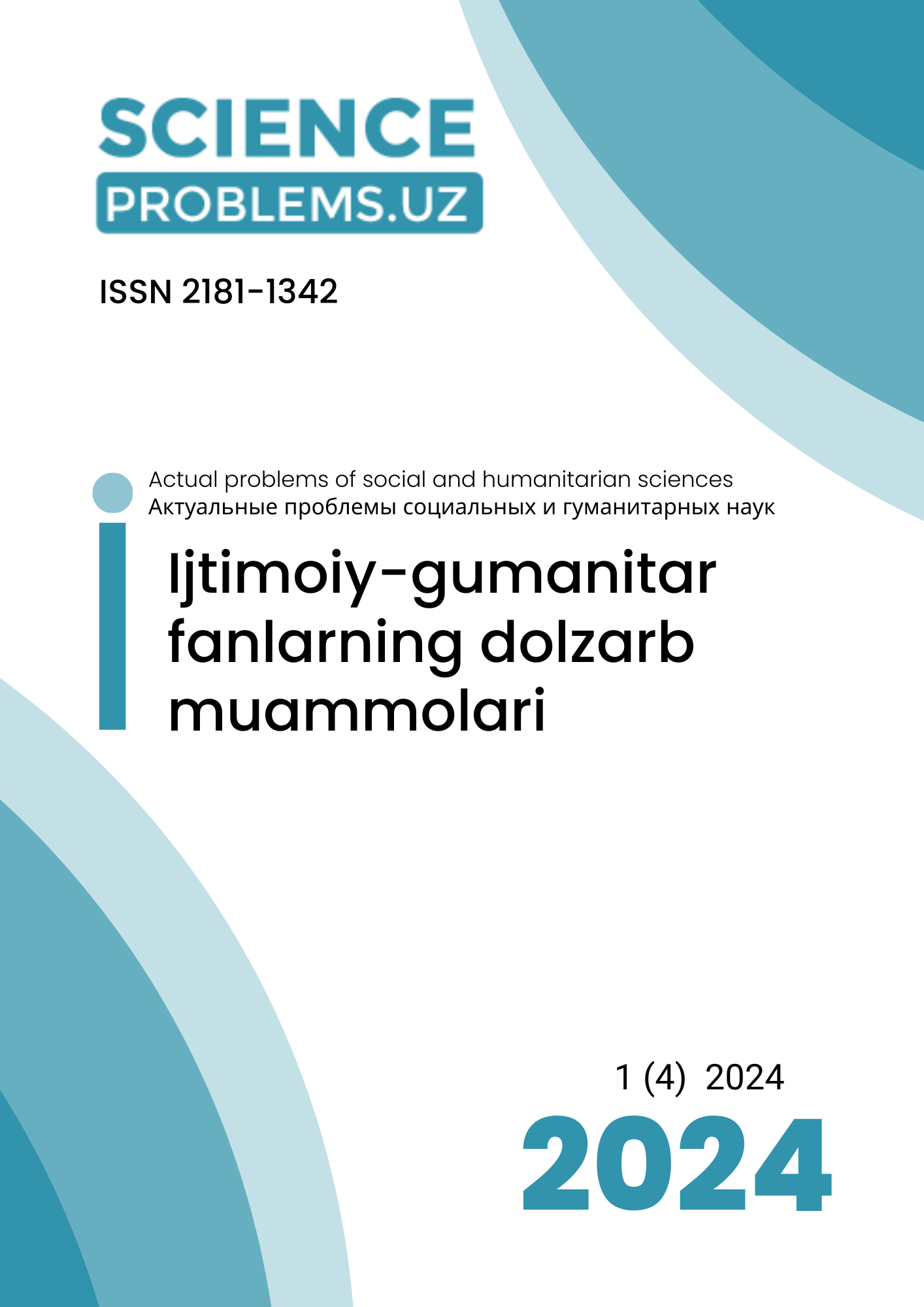THE TRADITION OF SATIRE IN NEW UZBEK POETRY
DOI:
https://doi.org/10.47390/SPR1342V4I1Y2024N30Keywords:
humor, criticism, satire, humor, poetic construction, pathos, theme, idea, criterion, motive of laughter and crying.Abstract
First of all, in the series of socio-cultural life, the greatest genre-compositional integrity appeared in the works of the creators of the Enlightenment period, and later they began to be further refined in strict principles. Starting from the individual character and then connecting to the general mood, it prepared the ground for updating the philosophical-aesthetic criteria of humorism. A strong critical-psychological mood began to evolve into the improvement of comic works. This led to the emergence of new genres in literary directions.These are the aspects that we are studying in the new Uzbek poetry, and in determining the poetic interpretation of the satirical phenomenon, the terminological meanings of the concepts such as theme, problem, idea, and pathos in the satirical poetry have been clarified.
References
Абдуғафуров А. Навоий сатираси. – Тошкент: Фан. 1-китоб.1966; 1972. 2-китоб.
Ашуров Т. Ўзбек халқ достонларида сатира ва юмор. – Тошкент: Фан, 1974. – Б.260
Воҳидов Э. Шеър дунёси. Танланган асарлар, 2-жилд. –Т., “Шарқ”. 2001. –Б.180.
Йўлчиев Қ. Типологик ўхшашликлар: бирлик ва учлик. Монография. –Т., “Turon zamin ziyo”. 2016. –Б.174.
Каримов Ғ. Мавлоно Муқимий. –Т: Ғ.Ғулом номидаги адабиёт ва санъат нашриёти. 1974. –Б.21.
Лев Толстой. Шекспир ва драма тўғрисида. Жаҳон адиблари адабиёт ҳақида. Рус тилидан О.Шарафиддинов таржимаси. –Т., “Маънавият.”. 2010. –Б.179.
Назар Эшонқул. Мендан “мен”гача. –Т., “Akademnashr”. 2014. –Б.185.
Эпикур. Манба: https://ziyouz.uz/hikmatlar/aforizmlar/jahon-adiblari-adabiyot-haqida/








